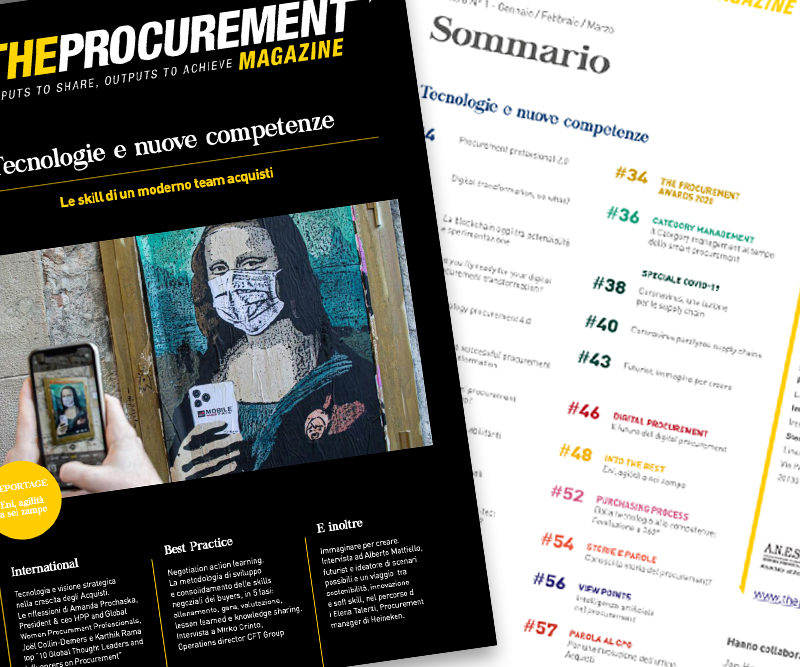This is the title of the article published in “The Procurement Magazine” (April 2020), where Chief in editor Micol Barba interviews Prof. Antonio Rizzi regarding the coronavirus and its impact on the international supply chains and its disclosure of the global network’s vulnerability.
The Chinese suppliers’ lockdown in the beginning of this year, strongly interfered with the whole supply chain of several companies worldwide. The closing down had immediate consequences for several companies, from the automotive to clothing, just to mention a couple.
In order to contrast the negative effect of unexpected events, as in this case a virus, “there is only one road to take” stresses Prof. Antonio Rizzi in the interview, “which is to switch from a lean supply chain to an agile supply chain, mapping out the whole supply chain and its possible vulnerabilities. An agile supply chain is able to produce “just in time” exactly what the market is asking for, coping with the constant uncertainty of the market demand. It applies a network of key suppliers mixed with extra stock of raw materials and components”.
Also in moments of non-crises, the market demand can in fact be very unpredictable and change rapidly, as for instance in the fast fashion market. In this sector the tendency is to choose local suppliers capable of changing and adapting and producing “just in time”.
“An agile supply chain is necessary”, says Prof. Antonio Rizzi, “when the market demand is unpredictable and the supply scenarios are characterized by great variability, as during emergencies. An agile supply chain relies on local suppliers, if possible duplicates, chosen not only because of the low cost but because of their services, their ability to be quick and fast in satisfying a variable demand and therefore a production that cannot be stocked in a warehouse but made just in time.”
The question is if we, in the near coming future and maybe especially after the corona-crises, will experience a return towards local and smaller suppliers.


